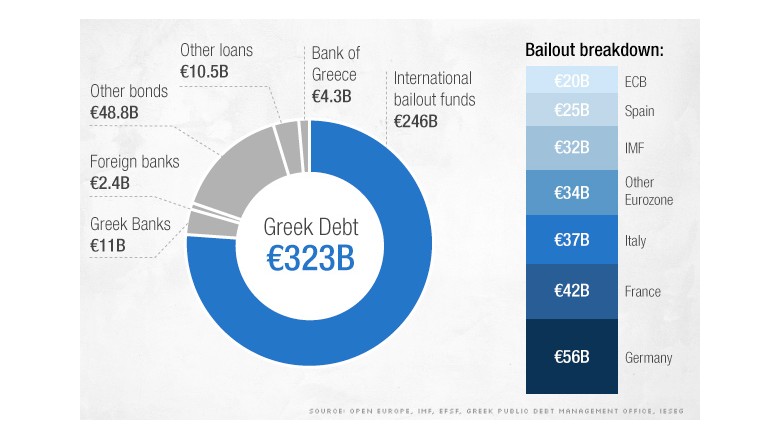Back in January upon coming into office, Syriza probably could not have won a referendum on whether to pay or not to pay. It didn’t have a full parliamentary majority, and had to rely on a nationalist party for Tsipras to become prime minister. (That party balked at cutting back Greek military spending, which was 3% of GDP, and which the troika had helpfully urged to be cut back in order to balance the government’s budget.)
Seeing how unyielding the opposition was, Syriza’s stance was: “We would like to pay. But there’s no money.”
This kept throwing the ball back into the troika’s court. The Institutions were so unyielding that Syriza’s approval rating in the polls rose by 13% by June. Greek voters became increasingly incensed at the Troika’s demand for further pension cuts and privatizations.
Tsipras and Varoufakis were willing to pay the IMF with the IMF’s own funds, in what V. called “extend and pretend.” But their only interest in keeping current on debt was to obtain additional funding that could be used to pay domestic pensions and other basic government budgetary expenditures.
The basic tactic in such tensions between creditors and debtors is clear: once debt repayments exceed new loans, stop paying.
So when The Institutions made it clear that no more credit would be forthcoming without Syriza adopting the old Pasok/New Democracy capitulation to Troika demands, Tsipras and Varoufakis decided it was time to call a referendum eight days hence, on Sunday, July 5.
Late Friday night and into the early Saturday morning hours, Greeks ran to the ATM machines to convert their checking and savings deposits into euro notes, expecting that the end game would involve a likely 30% depreciation of the drachma – and that indeed, the ECB would stop lending to support Greek banks (the only role the ECB wanted to play).
Syriza had no love for the banks. They were the vehicles through which the oligarchs controlled the Greek economy, after all. For a month, they had been discussing how to separate the banks into “good bank” and “bad bank,” either nationalizing them (wiping out stockholders) or creating a Public Option alternative.

